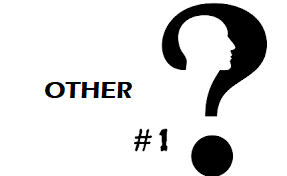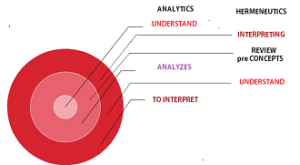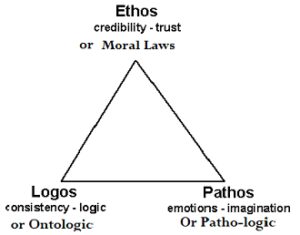
Arquivo para a ‘Método e Verdade Científica’ Categoria
The Civilization Crisis
 It is not just an idea of the apocalyptic, the pessimistic and the tragedies, dark spirits who do not really reflect on reality, it is those who think humanism, who look to a polarized, fragile and powerless life in the face of a pandemic (see Europa in the previous post) is the crisis of fragility that does not see itself as fragile.
It is not just an idea of the apocalyptic, the pessimistic and the tragedies, dark spirits who do not really reflect on reality, it is those who think humanism, who look to a polarized, fragile and powerless life in the face of a pandemic (see Europa in the previous post) is the crisis of fragility that does not see itself as fragile.
Arrogants, pseudo-sages, and pseudo-prophets are on call, but even an optimist like Edgar Morin bends over when he sees a system that cannot deal with its fundamental problems, it disintegrates, thus began his recent lecture on the metamorphosis of humanity, he told the event : “he becomes even more barbaric”, but remember that this is not the first and probably not the last metamorphosis of humanity, we were at the origin (he said for over 100,000 years) hunters and gatherers.
There was no army, no state or classes, but little by little some groups wanted to dominate others, this happened in India, China and the Middle East, in the Andes where an Inca Empire was organized and in Mexico (where he gave the lecture).
These societies have metamorphosed for better or worse, he has not made a statement about this, but he thinks that a metamorphosis over our nation-states is possible.
It states that it is necessary to have hope, but hope is not certainty, the hope that in the past was a belief now, but if hope exists it is the necessary leaven for great transformations, and it is understood that this is the moment we are living this reality, in a postmodern or post-postmodern world, there is a transformation.
It remains for us to know which one leads us to destruction, and which one is truly the bearer of hope, it doesn’t give great tips, but let’s do an exercise.
The first great destruction is war, with the arsenal of ultra powerful weapons, even interplanetary, there are several objects around the planet, it is necessary to defend peace with the same force that we defend justice, a war would now be a catastrophe.
The second major destruction is social imbalance, insecurity and the lack of a sustainable plan for the use of natural resources, the large meetings only discuss the issue of pollution and deforestation in some regions of the planet, when they should discuss the planet as a All in all, nature shows signs of exhaustion and a greater imbalance in natural forces, of planetary proportions, is expected.
As Edgar Morin says, it is necessary to have hope, we have already gone through other stages of the civilizing process through similar situations, of course the proportion is now planetary.
Edgar Morin – Do esgotamento à metamorfose dos sistemas – YouTube
The truth among men
Gadamer establishes the need for co-reference for the construction  of truth among men, the philosopher Socrates also said that the truth is not with men, but among men, so every self-referential discourse, even that appropriated by a group no longer has a truth growing and becomes just rhetoric.
of truth among men, the philosopher Socrates also said that the truth is not with men, but among men, so every self-referential discourse, even that appropriated by a group no longer has a truth growing and becomes just rhetoric.
Emmanuel Lévinas (1906-1995) developed the aspect of human finitude, as that which gives a provisional totality, in his book Totalidade e Infinito where he discusses the theme of alterity, with a central issue that is not being able to objectify the Other , and it is not about subjectivity, but the possibility of thinking of the Other in its absolute Otherness, in other words, as a totally other.
His book cannot be understood without an analysis focused on Husserl and Heidegger because of its phenomenological option in which it is affiliated, thus developing in this first chapter the category of alternation, while the second will deal with interiority, there appear notions of categories such as: jouissance , economy, home, ownership, work and the feminine is a topic that is so current in the question of gender and reflects the relationship of the Self with the real, enabling the building of a being at the same time separate and open to the outside.
Thus, the third chapter relates to the exteriority that underlies an ethics proposed by Lévinas, how an opening is given or built in Being, through the analysis of the categories of Infinity, Face and Exteriority, they are fundamental for the understanding of the Levinasian universe. .
The problem of human finitude in the aspect of truth can refer to a transcendence different from the idealist proposal, where the imperative category is linked to the concept of subjectivity: “acts in such a way that it is a model for others”, thus it is possible to develop in a personal universe an ethics, while for Lévinas, as it is for Gadamer and it was for Socrates, truth can only exist in a process of dialog with the Other and with the outside, every closure is self-referential.
Thus the “Other remains infinitely transcendent, infinitely strange, but his face, where his epiphany takes place and which appeals to me, breaks with the world that may be common to us and whose potentialities are inscribed in our nature and which we also develop in our existence” (Lévinas, 2008), here an epiphany that is only human.
We approach the Christmas feasts, in the Christian liturgy it is the feast of the divine epiphany, the divine manifestation to the peoples, for many only the feast of the wise men or the baptism of Jesus, but for those who think that the truth is “among men”, the presence of God with Us (Emmanuel) happens from the birth of the God-child.
In the biblical text (Jn 18: 37), when asked by Pilate if Jesus was the king of the Jews, he replied: “You say: I am king. I was born and came into the world for this: to bear witness to the truth. Everyone who is of the truth listens to my voice”, thus this truth among men is also established for Christian culture as the incarnate word.
Truth and finities´s humans
Not only did Hans Georg Gadamer write about the truth regarding Human finitude, Emmanuel Lévinas also developed the theme.
Human finitude, Emmanuel Lévinas also developed the theme.
In Gadamer, the conclusion about the truth of human experience is the awareness of its finitude, that is, it is knowing your own limits, knowing that you are not lord of time and the future, nowadays that you are not lord of nature and its behavior , the great Enlightenment ideal, and so it has its limits and its plans are insecure.
Thus, in Gadamer, the issue of rhetoric and discourse is not exactly an issue and the question is not really called into question, to be able to question it is necessary to really want to know the truth and it may be outside the limits of the questioner, says in your text:
“To ask, you have to want to know, that is, to know that you don’t know. And in the exchange of questions and answers, of knowing and not knowing, described by Plato as a comedy, one ends up recognizing that for all knowledge and discourse in which one wants to know the content of things, the question takes precedence. A conversation that wants to explain something needs to break these things through with a question” (GADAMER, 2008, p. 474).
Thus, it will be inscribed beyond prejudice, and in the constitution of new horizons, thus understanding the text or a fragment of the past, for Gadamer is to understand it from the issue that should be seen as a process of continuous fusion or broadening of horizons through which the interpreter participates with others in the long and arduous path of meaning, he goes beyond the romantic and historical Enlightenment point of view, which is unacceptable: the symbolic and plural language, characteristic of the narrativity of things.
But what does this mean? what this means for the philosophical hermeneutics that recognizes human finitude, there is no immediate possibility of a coincidence with the real, as every human understanding is linguistically mediated as every language is, in the Aristotelian view, a hermenia (interpreter) originating from the real and this it can be extended to cultures, to peoples, and especially to native peoples, primary sources of discourse and their own language.
As man is finite, only in language can his fundamental dialogical power reach what Western philosophy calls objectivity (proper ideality), but it must go beyond the point of view of the anonymous transcendental subject (idealist subjectivity) to reach the dimension of co. -reference of concrete men, of others.
Concreteness is thus the word that decenters and challenges, places what is said in otherness, and its perspective of tracing a fusion of new horizons does not end.
GADAMER, H.G. Truth and Method I. Fundamental features of a philosophical hermeneutics. 10th ed. Petrópolis, Brazil: Vozes, 2008
The truth and the method
Hans Georg Gadamer is the heir to Heidegger’s ontological hermeneutics, and he developed philosophical hermeneutics through his masterpiece Truth and Method, first published in 1960.
hermeneutics, and he developed philosophical hermeneutics through his masterpiece Truth and Method, first published in 1960.
To develop it, it needed to revolutionize modern Western hermeneutics, through the critique of aesthetics, the theory of historical understanding and the development of the ontology of language, to complement the Heideggerian method of the hermeneutic circle.
The publication of Truth and Method still means, today, a new study in the science of interpretation, which enters an important phase called philosophical hermeneutics, which should help human disciplines to seek, from experience, the understanding of their own being, constituting a a new philosophical attempt to assess understanding itself as a process of knowledge of the ontological status of man, thus founding a new anthropology.
As a philosophy of language, we are in the middle of a linguistic turn, it is not just access to the thing and not the truth, as the correspondence between word and thing only occurs when the thing is known, thus learning (teaching, search , question, answer and the information itself) is only done by thinking that leads things to the world of ideas, and thus words are no more than representation of signs to which meaning is attributed. and begins his study by Humboldt.
It was Wilhelm von Humboldt who used the theory of the human “strength of the spirit” as a source of language production, his thesis addresses an “idealist philosophy that highlights the subject’s participation in the apprehension of the world, but also the metaphysics of individuality, developed by the first time by Leibniz” (GADAMER, 2008, p. 568).
As a way of questioning the history developed in an idealistic way, Gadamer, when criticizing Dilthey, starts from preconceptions, where the historian “submits the otherness of the object to the previous concepts themselves” (Gadamer, 2008, 513), and is thus illustrated in his text: “despite all scientific methodology, he behaves in the same way as anyone who, a child of his time, is uncritically dominated by previous concepts and prejudices of his own time” (Idem).
For a new understanding, as a starting point for a new anthropology, interpreting is not a means of reaching understanding, but entering into the very content of what one wants to assign a meaning in a unitary or unilateral way, but that the “Thing of which speaks the text comes to the speech” (GADAMER, 2008, p. 515).
The text at the end questions linguistics itself, which states that each language does this in its own way, but the author emphasizes another focus looking for a unity between thinking and speaking, this infers from the fact that any written tradition can only be understood, despite the great multiplicity of ways of speaking, identifying an existing unity between language and thought, thought and speech, and in this case what is the conceptuality of all understanding? Conceptual interpretation is the way in which the hermeneutic experience is carried out.
As all understanding is an application of language, the interpreter is always in a continuous development of concepts, language remains alive both in speaking and in understanding the entire process of understanding, interpreting and thinking.
GADAMER, H.G. Truth and Method I. Fundamental features of a philosophical hermeneutics. 10th ed. Petrópolis, Brazil: Vozes, 2008
The pandemic is not over
It is sad and distressing, but the pandemic is not over, Europe is very concerned about covid-19 and in Brazil, where the numbers have not yet dropped from 260 deaths a day, and the Oswaldo Cruz Foundation of Brazil (Fiocruz) registered a increase in children in cases of respiratory syncytial virus (RSV) with records higher than Covid 19.
is very concerned about covid-19 and in Brazil, where the numbers have not yet dropped from 260 deaths a day, and the Oswaldo Cruz Foundation of Brazil (Fiocruz) registered a increase in children in cases of respiratory syncytial virus (RSV) with records higher than Covid 19.
While cases are on the rise in countries like Germany, Russia, Hungary, Slovakia and the Czech Republic, Russia set a new record for infection and deaths last week (It has only 34% of the population vaccinated), concern is growing over the arrival winter, and in Austria the government decreed a lockdown for unvaccinated people.
In Russia the measure taken was a national recess from October 30th to November 7, in Germany the director of virology at the Charite hospital in Berlin emphasized: “We have a real emergency now” as the country has registered almost 40,000 cases of covid , the biggest since the beginning of the pandemic, and made an alarming prediction, 100,000 people could die.
In Brazil, although moving at a slower pace than in the previous period of vaccine vaccination, the number is increasing and in many places there is a demand for people who did not come for the second dose. close to 59% of the Brazilian population is fully immunized and almost 80% have already received the first dose.
Seven Brazilian States are on the rise after a sharp fall in the previous month: Santa Catarina, Pará, Roraima, Rondônia, Bahia, Ceará and Piauí, a case that drew attention was Serrana (Brazil), where the São Paulo government carried out a mass vaccination trying to make the model city for vaccination, there were 563 cases in the last month and such a high number (the city has 45,644 inhabitants) did not have a clear explanation (see photo, official data from the municipal health Departament).
The end of the year parties are approaching and the concern is with the surveillance that does not exist in public spaces (concerts, shopping malls, supermarkets, etc.) and a flare-up of the disease would not only bring a worsening of health, but would extend the social crisis that is already affecting unbearable levels, there are no measures around this aggravation, the rise in prices is there.
Another worrying factor is now the psychological health of the population subjected to high stress and constant pressure of concern about the disease without clear policies, it is already possible to observe a large number of people with changes: anguish, tension, depression and antisocial attitudes, overcoming the crisis will require a lot of public efforts.
It is easy to observe in the markets and in daily consumption an increase in alcoholism and use of medicines, the end of the year parties could improve this aspect, but the social crisis does not help, the parties should be modest or in non-Christmas parties where the exaggeration and Drinks allow you to tap into the energies contained in the pandemic.
The meekness in times of polarization
Meekness is a fundamental virtue for resolving conflicts, establishing new spaces for dialogue where it ended and opening new horizons where they seem impossible.
establishing new spaces for dialogue where it ended and opening new horizons where they seem impossible.
John Calvin has a very noble phrase: “It will be useless to teach meekness unless we have started with humility”, in fact the great reason why some seem right and others unreasonable. on the sides (the opposite of humility) and within these parameters, no dialogue will be possible, or what we prefer, no “new horizon” will be drawn that establishes a future point where conflicting points may enter into a process of convergence.
Polarization is inevitable may be the arguments of some, yes if reaching a certain point of conflict this is valid, but we must know that the actual way out of a conflict will have to have the flag of peace at some point and it cannot be the The flag of submission of the vanquished, the pax Romana, after Rome conquers its territories, it is submission to an authoritarian concept that at a certain point will return to war.
Power is always asymmetrical, this is true, but meekness can lead to it being exercised with modesty and justice.
Polarization is logic may be the argument to justify it, but remember that fuzzy logic, paraconsistent logic and other logics are not binary, yes or no, and that there are never only two sides, this is an idealistic position that it induces duality, there can be multiple sides, so the really fair logic admits a third hypothesis.
These will never be winners and will always be by the wayside may be another thought, as paradoxical as the divine teaching may seem, in many religions, is that meekness and humility lead people to high, one of the biblical beatitudes says (Mt 5, 5): “Blessed are the meek, for they will possess the land” and so where is their power, the conquest through perennial values can only lead to plenitude and perenniality itself, the problem is to yield to values tricky and unfair.
The construction of a perennial reality, a time of peace and justice, as we begin to emerge from a pandemic, is fundamental, even if it seems distant.
Act, potency and agape
What Aristotle defined as potency was conditioned to the act, so the act is a current manifestation, in the example of the figure beside the seed), while potency is what could be (virtually, while virtú) the seed in potency is a tree could its manifestation as being to produce fruits and new seeds, while virtual, in the sense of virtue, is to transform it into a table or even a house.
the act is a current manifestation, in the example of the figure beside the seed), while potency is what could be (virtually, while virtú) the seed in potency is a tree could its manifestation as being to produce fruits and new seeds, while virtual, in the sense of virtue, is to transform it into a table or even a house.
Actual potential actualization is not just the seed that becomes a tree and bears fruit, the main source of change must be completely real and not only correspond to natural potentiality, but that which completes the rest, and this depended on Aristotle’s The first motor that gave meaning to everything, and that Thomas and Aquinas claims to be God, enters the question of conscience.
Here comes Logos or Pathos, since consciousness is always a dictate of reason and will, so for Thomas Aquinas Ethos depends essentially on human will and consciousness, while Logos leads us to a more primordial reason for Being , Pathos moves towards disordered passions and drives, while Logos should lead us to agape and balance.
Potency is thus characteristic of Being and Pathos its distortion, power seen as Pathos is authoritarian and passionate, while power as Ethos is ethical and agapic, in the sense of service done out of gratuitous love to those they are subordinate, so it can until there is asymmetry, but it will only be diversity and never authority in the sense of absolute power as it is united with the Logos.
It is not by chance that Aristotle was tutor of Alexander the Great, and his form of power spread to the peoples, as well as Plutarch in his text “Alexandre (in Parallel Lives”, 1st century): “After this battle of Issus… Macedonians form to take a liking to the other, silver and women, and the way of life of the Asians, becoming so fond of it that, as if dogs, they set out on the trail in search and pursuit of the opulence of the Persians”, is likely. which also influenced the Romans.
That’s how we reach the second war and the dangers of post-modernity, will we leave our childhood civilization and will one day be able to coexist with peoples with different cultures and cosmogonies, we seem to be heading in the opposite direction: polarization.
It was also no different for Jews and Christians, in the nascent community many wanted to have “power” alongside Jesus, in the reading of Mark (Mk 10:36-37) the apostles James and John make a special request to Jesus: “He he asked, ‘What do you want me to do for you?’ They replied, ‘Let us sit one on your right and one on your left, when you are in your glory,’ and the master tells them they don’t know what they’re asking for.
Ai asks if they can drink from the cup that He will drink (referring to their type of death), they keep saying yes, then rebuke them and tell the form of power that exists in civilization (Mark 10: 42-43): “Jesus called them and said: ‘You know that the heads of the nations oppress them and the great ones tyrannize them. But among you, it must not be like that: whoever wants to be great, be your service and whoever wants to be first, be the slave of all”.
So those who govern believers in the same way as the temporal power have not yet understood the potency of the agapic Logos.
Will to power and civilizing childhood
A well-known concept of Nietzsche is the will to power, as a “natural” driving force of man, we have already developed that the natural is different from the cultural, this being one of the infernal dichotomies as Latour said, the other is objectivity x subjectivity coming from rationalism/idealism of modernity.
driving force of man, we have already developed that the natural is different from the cultural, this being one of the infernal dichotomies as Latour said, the other is objectivity x subjectivity coming from rationalism/idealism of modernity.
In fact, this led people to expand from the primitive world, I would say in the infant civilizing age, the wars and empires of Alexander the Great, of which Aristotle was tutor, and later the Roman Empire, and the empires of modernity: the Portuguese, the French, Russian and American and the two world wars are in fact the great crisis of modernity, we were not able to overcome the civilizing childhood.
There were other great empires little mentioned in history: the great Manchu Qing dynasty of northern China invaded and defeated the Ming dynasty, it was a minority ethnicity but it dominated all of China and even had a brief restoration in 1917 and the great Mongol Empire was one of the largest in terms of area, reaching Europe in the 13th and 14th centuries.
One can think of potency as a form of growth to overcome both individual and civilizing childishness, so there is an act and potency, theorized Thomas Aquinas, but Nietzsche himself warns of this other sense: “the will to power is not even a being , not a becoming, it is a pathos”, so let us analyze the triad of classical antiquity: ethos, pathos and logos.
Pathos is in modern rationalism that also used by Descartes, in a different sense from Nietzsche from which the idea of pathology comes, which moves in imperfection, using Nietzsche’s own idea is not ontological, it denies being because it does not even ethos and nor the classic triad logos.
In Aristotelian rhetoric, ethos is one of the modes of persuasion or components of an argument, and this one gives meaning to being, being the link with the Logos that gives meaning to Being, giving credibility and establishing a truth that is not reality, because that is where the Logos draws the consistency of Being to oppose the Pathos-logical.
The Pathos lives in pure emotion, in irrationality, in deceitful imagination, he is responsible for the disorders of the Being, being in a way its denial.
The Pathology of two world wars has shown that humanity has not left its civilizing infancy, it is still a victim of itself incapable of conceiving Being as Ethos.
The thinking between simplism and simplicity
Naive thinking ignores the complexity, relief and depth of things see them in the superficiality of their appearance, while simplicity initiates a phenomenological process that begins with the appearance of the beholder and then develops a greater perception, in the words of philosophy, the noema, that complements the initial phase of the ability to feel, the noesis.
see them in the superficiality of their appearance, while simplicity initiates a phenomenological process that begins with the appearance of the beholder and then develops a greater perception, in the words of philosophy, the noema, that complements the initial phase of the ability to feel, the noesis.
By defining complex thinking as having three principles: recursive, dialogic and hologrammatical, Edgar Morin thus explains this third that is inseparable from the other two:
“The hologram is a physical image, conceived by Gabor which, unlike ordinary photographic and filmic images, is projected into space in three dimensions, producing an astonishing sensation of relief and color. The holographed object is restored, in its image, with remarkable fidelity. This hologram is made up of coherent light (laser) and a device that makes each point that constitutes this image contain a sample of the system of interference lines emitted by the points of the holographed object” (MORIN, 2003, p. 34).
To explain and clarify certain phenomena it is necessary to use didactic resources that simplify them, however, this pedagogical task cannot mutilate the explanation nor make it absolutist.
There is nothing more complex than reducing it to the simple, as stated by Bachelard, there is no such thing as simple, there is only the simplified, which in most cases mutilates and deforms the phenomenon, inducing thought to an obscure liquidity.
Phenomena of nature are not easily simplified, often the pretension of mastering it even in scientific cases has revealed a perverse face, this has happened from atomic physics to modern communication technologies, it is necessary to predict and investigate adverse effects.
However, the simplicity of seeing the phenomena does not only depend on the culture, which is always diverse, but on the ability to reduce the idea (the eidetic reduction proposed by Husserl), where we go from simple appearance to the experience of consciousness about what it is informed by the senses and how the mind receives them, interpreting what is informed.
Simplifying always requires an analogy or a metaphor, we’ve already discussed it here, and that yes, it is necessary to be simple to receive “new” information with the disposition of a child, with an epoché, say philosophy, with a suspension of judgment, I would say, Cartesian thought .
MORIN, Edgar et al. (2003> Educar para a era planetaria: o pensamento complex como método parra aprendizagem. (Educating for the planetary era: complex thinking as a method of learning in human error and uncertainty). São Paulo: Editora Cortez.
Science with conscience
A tiny virus challenged us and put us in front of a serious pandemic, a volcano that erupts and whose end even volcanologists and geologists still see as unpredictable.
a volcano that erupts and whose end even volcanologists and geologists still see as unpredictable.
The great mark of contemporary science is the end of certainties, the uncertainty principle first announced by Heisenberg and then certified by research in particle physics and astrophysics, Karl Popper developed the principle of falsifiability for science and Gödel’s Paradox says that no axiological system can be complete and consistent at the same time.
This should return us to humility, the Enlightenment does not mean that science has triumphed, but that it has discovered its limits and that it must give space to ethics and a humanism that completes man beyond his rationality.
Edgar Morin wrote “Science with a conscience”, presents a double challenge: it points out the ethical and moral problems that contemporary science has, whose multiple and prodigious powers of manipulation impose on scientists and citizens, and in a certain way, the entire humanity problem. political and private control of the discoveries.
According to Morin, the concepts of progress and knowledge that are related must be reordered, so progress is not reduced to the organization of economic development, and knowledge is not restricted to providing information, but also to overcoming theoretical social structures that condition their configuration to a way of thinking.
He clarifies on pages 9 and 10 that “the classic dogma of separation between science and philosophies, the sciences of this century all encounter fundamental philosophical questions: “what is the world? the nature? life? The man? reality?) and that the greatest scientists since Einstein, Bohr and Heisenberg have turned into wild philosophers.” (MORIN, 2005).
Remember in the preface also the precept of Rebelais: “Science without conscience is only the ruin of the soul.” (p. 9).
MORIN, E. Science without a conscience. Editing revised and modified by the author. (Translation by Maria D. Alexandre and Maria Alice Sampaio Dória). 9th Ed. Rio de Janeiro: Bertrand Brasil, 2005.

